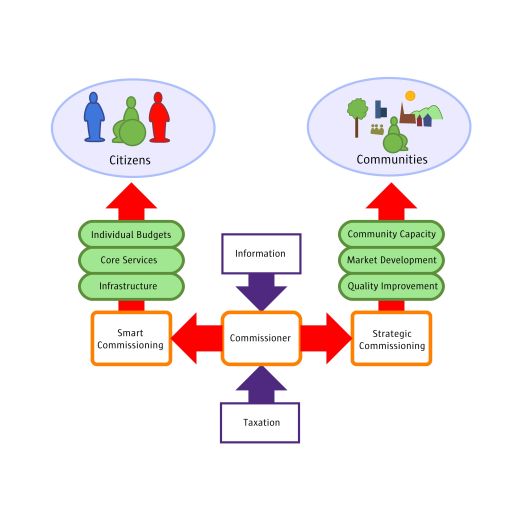In the past commissioners were told by central government that their job was to purchase services on behalf of citizens; this model turns that idea around.
Author: Simon Duffy
In the past Commissioners were told by central government that their job was to purchase services on behalf of citizens. Smart commissioning turns this concept on its head and seeks, where it is appropriate, to enable citizens to do purchasing for themselves.

One of the major obstacles to the development of Individual Budgets has been the assumption that many public services need to be commissioned on behalf of local people. Moreover it is certainly the case that some public services (e.g. emergency ambulance services) are much more efficiently and effectively organised in this way. However this does not mean that it makes sense to publish all public services as if they were emergency ambulance services. Smart Commissioning was a model developed by Simon Duffy to help local commissioners reconceptualise their role around the enablement of effective purchasing of public services by local people themselves.
Smart commissioning involves exploring where commissioning decisions can be delegated to citizens and where they ar best left at a strategic level.
Smart commissioning will involve:
There will continue to be a strategic commissioning role which will have the following elements:
The publisher is the Centre for Welfare Reform.
Smart Commissioning © Simon Duffy 2011.
All Rights Reserved. No part of this paper may be reproduced in any form without permission from the publisher except for the quotation of brief passages in reviews.
community, local government, Self-Directed Support, England, Inspiration